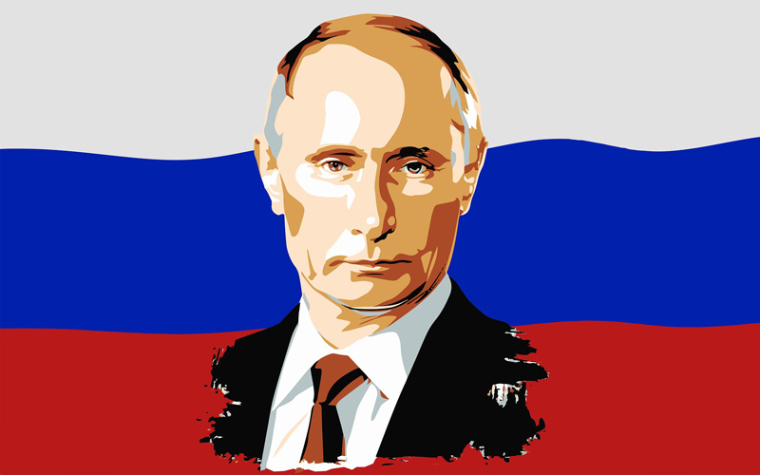
I was having coffee with a good friend when she asked the question. “Would Putin ever be like the thief on the cross and be able to go to heaven?”
Like me, my friend is appalled at the stories coming out of Ukraine and the atrocities that have been committed. We both know that God’s grace is “boundless and free” and that God’s love is “vast and unmeasured” as the old hymn puts it. But how could it be possible for President Putin to be forgiven for what has been happening in the Ukraine?
This issue has always been with us. Whenever and wherever “man’s inhumanity to man” has occurred, people not only ask where is God in situations like this, but they also have agonised over whether those who commit such atrocities could ever be forgiven.
But the issue becomes very real for us now, because of the agony that Ukraine is enduring.
What Jesus said to the thief
As my friend and I drank our coffee, several things became clear.
One is that we can’t judge whether or not Putin, or anyone for that matter, will go to heaven. That’s not our call, because we can’t know anyone’s full situation, as God does. It’s a question that we can’t answer – for anyone.
It also raises the issue as to how we think of heaven. For many people it’s simply somewhere in another realm from where their loved ones are looking down on them. Jesus doesn’t come into it.
For Christians though it may help to consider what Jesus said to the thief on the cross next to him – “Today, you will be with me in paradise,” Jesus responded. This man was going to be with Jesus – and that is what heaven is about – being with Jesus. Maybe we should put the question this way, would Putin want to be with Jesus?
Realising who Jesus is
Peter, the disciple, when he realised who Jesus was, said to him, “Leave me Jesus, because I am a sinful man.” The reality of who Jesus was really hit him – and in contrast, the reality of who he was, a sinful man, also hit home. It was the same with the thief on the cross – he realised who Jesus was, and he also realised what he was. Yet he turned to Jesus.
We can never judge where anyone stands before God, but it does appear that Putin’s actions and the Russian Orthodox Church are inextricably linked. One is intertwined with the other. Putin has been photographed carrying out Orthodox rituals, presumably to indicate a degree of piety. He is deliberately following in the footsteps of the tsars of Russia who had close links with the Orthodox Church.
Ukraine – an area, or a sovereign state?
Similarly, how Ukraine is regarded in Russia, is tied up with an understanding of Russian history, the nature of Russia itself, and where “the Ukraine”, (an area,) rather than Ukraine, (a sovereign state,) fits into this Russian mindset.
The head of the Russian Orthodox Church recently preached a sermon in a cathedral built, not for the glory of God, but for the glory of Russian military might. In his sermon he talked about the Russian soldiers, in the words of John’s Gospel, laying down their lives for their friends – the Ukrainians. (The fact that the Russian troops are committing atrocities against these ‘friends’ is not part of the current mindset; bodies of Ukrainian civilians lying in the streets are said by the Russians to be staged by the Ukrainians. Satellite photos of the area indicate otherwise.)
Is Putin responsible for what his military commanders do?
There is also the issue as to how much Putin has been informed about the campaign. There’s some intelligence that suggests Putin is being kept in the dark about the nature of Russian losses, and possibly atrocities. Does the Russian failure to acknowledge or take responsibility for the genocide currently taking place in what is another sovereign country, lie with Putin or his military commanders?
As the call for accountability gets louder, it is clear that justice needs to be done – and seen to be done. Putin, as the initiator of the ‘special operation’ in Ukraine, is regarded by most in the West as having committed war crimes. He is ultimately responsible. How and when and if he will be tried as a war criminal remains to be seen, but he is ultimately responsible before God.
Meeting Jesus
If Putin was to meet Jesus personally, rather than engaging in forms of ritualistic piety as sanctioned by the Russian Orthodox Church, would he be overwhelmed by the need to face up to what he has done? When Zacchaeus, one of the despised tax collectors, met Jesus, not only did he experience salvation himself – as in his triumphant words, “Today, salvation has come to this house,” - but he also recognised his wrong-doing and promised to restore four-fold what he had taken illegally from people when collecting taxes. He knew he had to be accountable. Meeting Jesus opened his eyes.
If Putin really met Jesus in this life, would his eyes be opened? Would he be prepared to face trial for war crimes; and to help restore the country he has devastated? We would anticipate there would be costly reparations to be paid. If he wasn’t toppled by a coup, would he voluntarily stand down from his role as president? These are issues for this life – before there is any question as to what would happen beyond this life.
Would Putin really want to ‘be with Jesus’ in the next life, if he hasn’t been with him in this life?

Liz Hay rejoices in living in a beautiful part of God’s creation in a high country mountain basin; and she also rejoices in hearing stories of God at work in people’s lives. One of her favourite activities is reading fascinating biographies that illustrate the wonderful ways God works uniquely with each person.